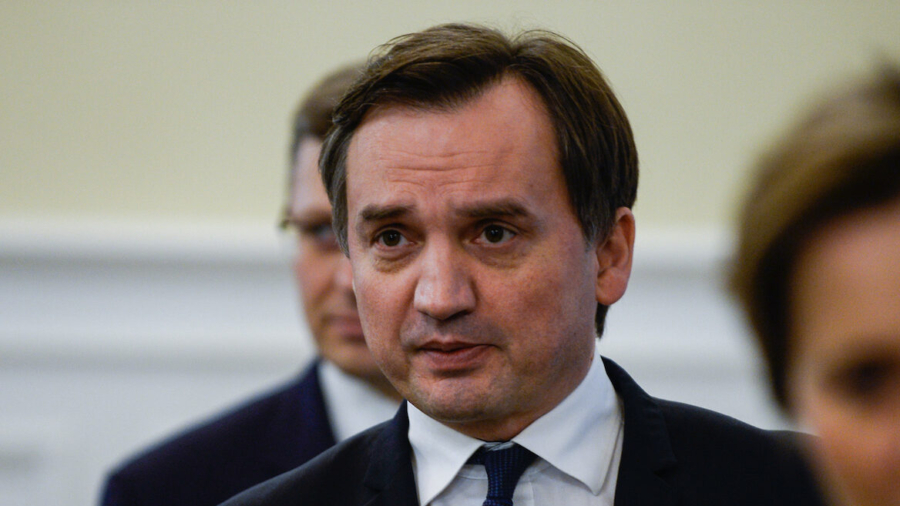Poland’s minister of justice said on Thursday that the central European nation “must not succumb to lawlessness” and should not pay any of the daily penalties imposed on the country by the Court of Justice of the European Union (CJEU).
“The Polish state cannot bow to lawlessness,” Zbigniew Ziobro told reporters at a press conference.
“Whether in the case of unlawful penalties concerning the Turow [coal mine] or in the case of the penalty for changes in the judicial system, Poland cannot and should not pay a single zloty,” the minister said. Zloty is the currency used in Poland.
The CJEU ruled on Oct. 27 that the Polish government has to pay a 1 million euro (about $1.2 million) penalty every day for maintaining a disciplinary chamber for judges, citing the primacy of EU law over national law.
In addition, a 500,000 euro ($580,000) daily fine was imposed on the country last month for ignoring the EU’s injunction to halt operations at the Turow brown coal mine on the Czech border, which the Czech government cited as damaging to its communities. Poland says the mine a major source of jobs and electricity in the region and vowed to keep it running.

Ziobro called the injunctions lawless. Poland insists the CJEU has no authority over its justice system and has been ignoring its rulings.
The Luxembourg court said in an Oct. 27 statement that the daily fine was “necessary in order to avoid serious and irreparable harm to the legal order of the European Union and to the values on which that Union is founded, in particular, that of the rule of law.”
According to the principle of primacy, EU laws are superior to national laws for member states of the 27-nation bloc.
In early October, the Polish Constitutional Tribunal ruled that some of the EU’s laws conflict with the country’s constitution and that national laws will have supremacy over those of the EU in areas where they clash, a move that was criticized by the EU, prompting a week-long war of words between Poland and the EU.
The EU warned Poland on Wednesday it can suspend the payment of COVID-19 pandemic recovery funds to the country if it continues to ignore orders to abolish its disciplinary body.
Ursula von der Leyen, the head of the European Commission, said on Wednesday the conditions for maintaining the funds will include closing Poland’s Disciplinary Chamber and adding changes to the way the judges are disciplined, as well as reinstalling some of the suspended judges.
“I think it is doable, I hope that we will reach an agreement,” she said.
Polish Prime Minister Mateusz Morawiecki told the European Parliament last week that they are working on abolishing the disciplinary chamber and replacing it with another system before the end of the year, but no detailed plans have been presented yet. It is also not clear whether the replacement would be more in line with the EU’s values.
The Associated Press contributed to this report.

